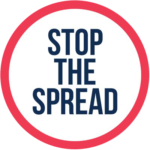BIO SECURITY
DON’T ABUSE IT OR WE WILL LOSE IT!
Here at Lakesman we recognise how vitally important protecting and preserving out natural habit is. By adopting a few simple procedures you can help us play our part in ensuring a safe, sustainable environment which we can enjoy for generations to come.
Number one for any athlete, whether during a race or simply training in the open water. The adoption of the following procedures, with your swim equipment (wetsuit, goggles, swim hat, safety float etc) after swimming.
Check your equipment, boat, and clothing after leaving the water for mud, aquatic animals or plant material. Remove anything you find and leave it at the site.
Clean everything thoroughly as soon as you can, paying attention to areas that are damp or hard to access. Use hot water if possible.
Dry everything for as long as you can before using elsewhere as some invasive plants and animals can survive for over two weeks in damp conditions.
Invasive plants and animals harm the environment, block waterways, clog equipment, and can be costly to manage. They can be small and hard to spot so are easily spread on damp equipment and clothing. Once established they become extremely difficult to eradicate, which is why it is so important to prevent their spread in the first place.
There is a greater risk of invasive plants and animals being spread during an event or competition, where participants could be unknowingly introducing them on their boat and kit, or taking them away to the water bodies they usually visit. The risk is even greater if participants are visiting from abroad.
Derwent Water, the location for Lakesman Triathlons has already been invaded by New Zealand Pigmyweed, Crassula helmsii.
In order to ensure we stop the spread of this species we need you all to play your part in following this information. A number of other nearby water courses (Buttermere/Crummock/Wast Water/Ennerdale) are not currently affected, therefore it is vitally important you follow this guidance to keep it that way. Failure to do so risks prosecution under the Wildlife & Countryside Act, 1981.
Below are some useful links to biosecurity procedures and information on Invasive Non Native Species
Defra Check, Clean, Dry best practice biosecurity procedure:
http://www.nonnativespecies.org/checkcleandry/
http://www.nonnativespecies.org/checkcleandry/biosecurity-for-events.cfm
Invasive Non Native Species information:
http://www.nonnativespecies.org/home/index.cfm
Cumbria Freshwater Invasive Non-Native Species Initiative:
http://cfinns.scrt.co.uk/
